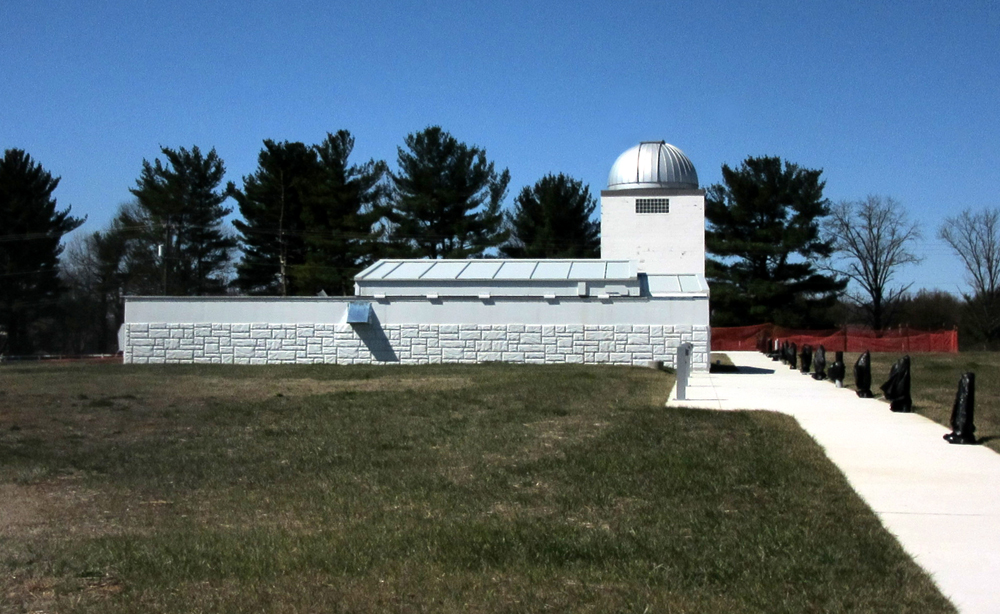We've all seen in books drawings of our solar system. The drawing of the sun, planets and moons, and the dwarf planet pluto all seem to fit nicely on the centerfold. Since the enlightenment, scientists have devised orraries to show the planets and their motions. But we're fooling ourselves.
The planets and moons are tiny compared to the sun and their is tremendous empty space between them. How much empty space?
Go to: https://joshworth.com/dev/pixelspace/pixelspace_solarsystem.html At the bottom of the window are tiny < and > scroll buttons and a small square slider to walk you from the sun to pluto. For the size of the sun (scaled so that our moon is one pixel on your screen) the length of the scrolling chart is 457 feet (139m).
 Lost in space? Come to Obervatory Park at Turner Farm and walk from the gate to the Roll-Top Observatory. We've laid out the distance of the planets in real scale (but even then we've cheated on the sie of the planets so that you can see them).
Lost in space? Come to Obervatory Park at Turner Farm and walk from the gate to the Roll-Top Observatory. We've laid out the distance of the planets in real scale (but even then we've cheated on the sie of the planets so that you can see them).
For Josh Worth's website, here is a cheat sheet for finding the planets (He uses the mean distance from the sun in kilometers).
There's a lot of empty space between. Try it on our walkway.
Venus - 108 million km
Earth - 149 million km
Mars - 228 million km
Jupiter - 778 million km
Saturn - 1.43 billion km
Uranus - 2.87 billion km
Neptune - 4.5 billion km
Pluto - 5.9 billion km

